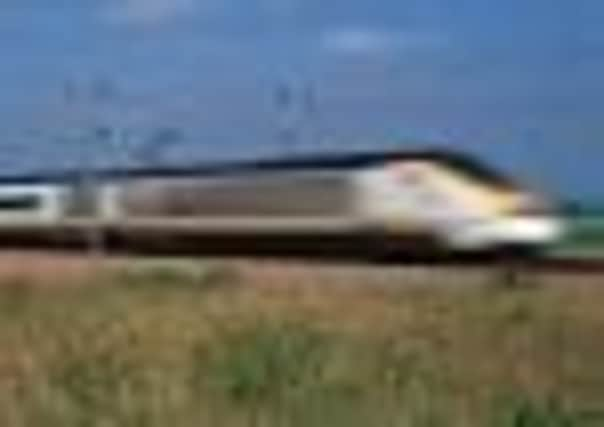Railroaded through


And they insist the line will never be built as its perceived economic benefits disappear.
Transport Secretary Justine Greening MP on Tuesday gave the go-ahead for HS2, the first phase of which will cost £17 billion and cut travel time between London and Birmingham to 49 minutes when it opens in 2026.
Advertisement
Hide AdAdvertisement
Hide AdShe called the project “the most significant transport project since the building of the motorways”, adding: “by following in the footsteps of the 19th century railway pioneers, the Government is signalling its commitment to providing 21st century infrastructure and connections – laying the groundwork for long-term, sustainable economic growth.”


The Government says the eventual capital cost of lines to Manchester and Leeds is £32.7 billion, offset by benefits of up to £47 billion and fare revenues of up to £34 billion over six decades. New mitigation measures including ‘green’ cut and cover tunnels, ‘streamlined’ blight purchase and sale and rent back schemes and measures to bolster confidence for those living above tunnels.
Ladbroke resident Graham Long, a director of the HS2 Action Alliance, dismissed them, saying: “They’re trying to divide us by giving one or two little sops to people in the hope that they’ll go away.”
He said the Government had failed to get the response it wanted from consultation and “mealy mouthed” support from the Transport Select Committee and so had turned to Network Rail, which last week released a report dismissing the alternative of investing in existing lines.
Advertisement
Hide AdAdvertisement
Hide AdMr Long ridiculed the approach of going to a railway company to ask if more train lines were needed.
Both he and Warwick District Council leader Cllr Michael Doody predicted diminishing economic benefits would eventually kill HS2, but only after millions were spent.
Warwick and Leamington MP Chris White said he would vote against HS2 as alternatives had not been investigated, adding that he felt the 21st century’s industrial revolution lay in microships and fibre optics rather than adding to the 19th century’s coal and steel legacy.
Kenilworth and Southam MP Jeremy Wright, who had supported using existing corridors, said the revised route was an improvement and further mitigation possible.